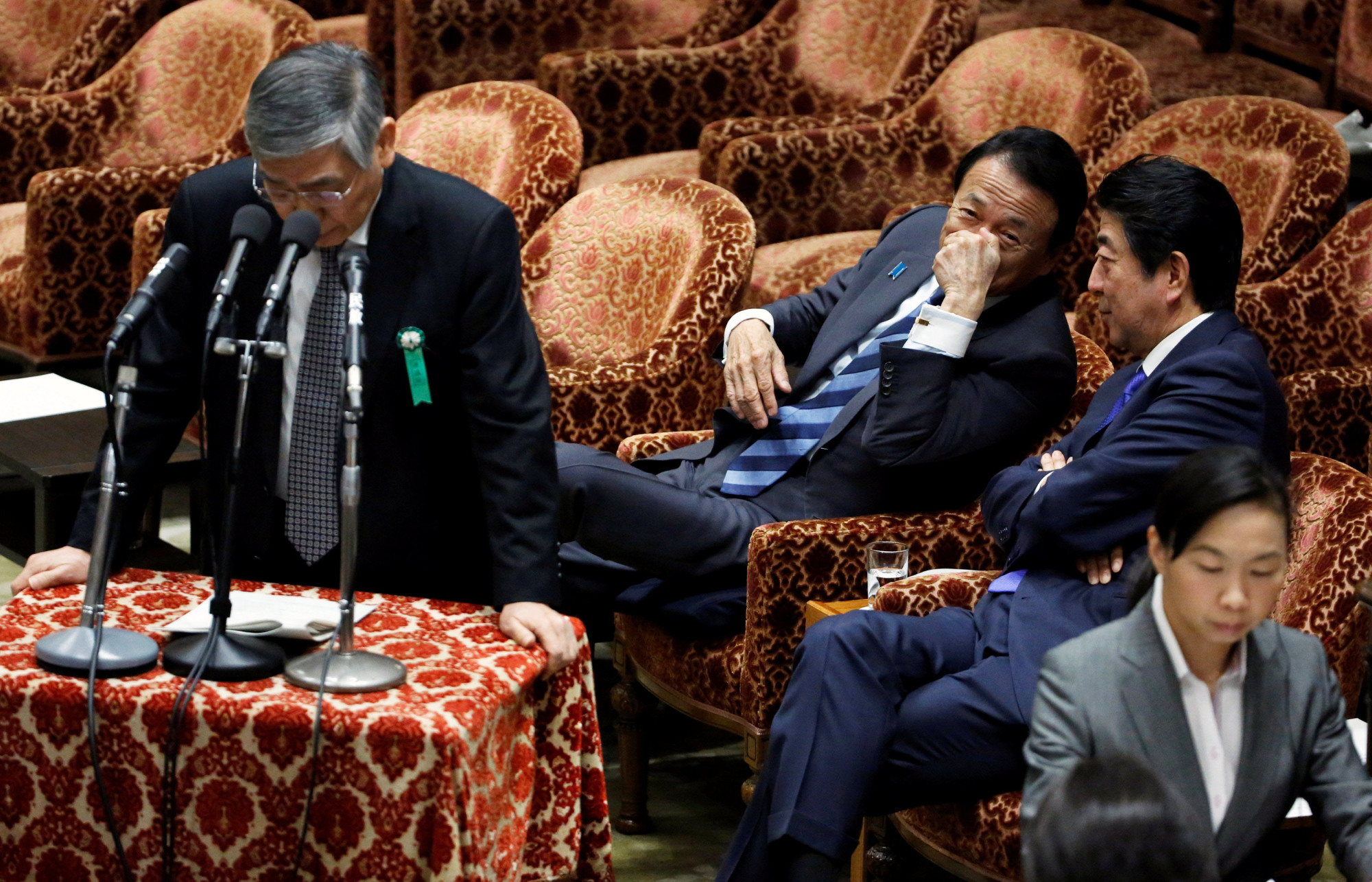The reports that Haruhiko Kuroda will be reappointed as Bank of Japan governor say as much about the path Japan is on — and its dangers — as they do about the man.
A Japanese long weekend began with reports from Nikkei and Kyodo News that Prime Minister Shinzo Abe will give Kuroda something none of his predecessors in the past four decades received: a second term at the helm of the central bank. It's tempting to see this as a sop to financial-market stability. The last thing investors needed was a change; Kuroda's chances of a second stint were high, and last summer I endorsed another term.
For all the progress under Kuroda, the hardest part lies ahead. The BOJ has the unenviable task of acknowledging Japan's sunny economic spot and at the same time convincing stakeholders that none of the huge stimulus will be removed anytime soon. The central bank's response to skepticism has been to shut down any discussion of what comes next: flood the fixed-income market with money to keep the yield on the 10-year Japanese government bond at zero and assert the problem lies not with policy but with idiots who don't understand it.



